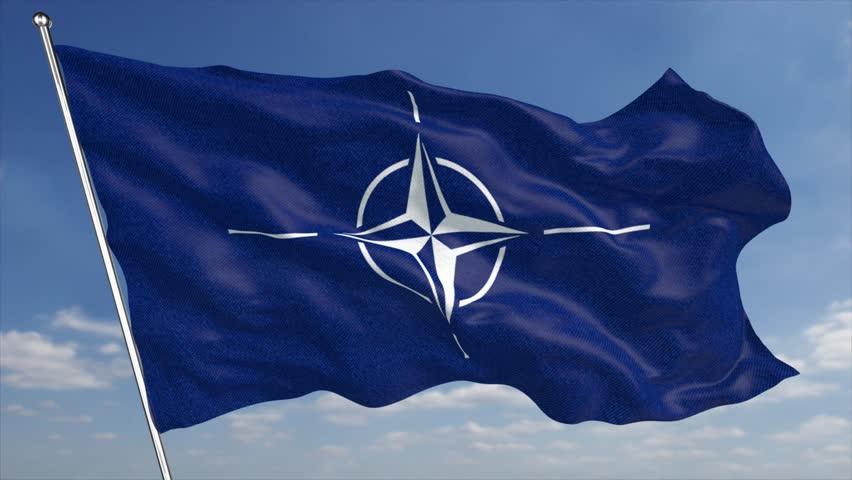Armenia turns to military alliances over growing war threat

By Abdul Kerimkhanov
Armenia is a member of Russian-led military bloc, Collective Security Treaty Organization (CSTO), described by political scientists as the Eurasian counterpart of NATO. The CSTO’s purpose is to ensure the collective defence of any member state that faces external threat. Armenia relies on CSTO’s support to defend itself in case Azerbaijan starts a war to liberate its occupied territories. Yerevan fears Azerbaijan’s growing military strengths. Compounding Armenia’s fears is Yerevan’s defeat in the four-day war in April in 2016 where Azerbaijan army gained upper hand over Armenian forces in the battlefield – liberating several strategic heights.
The fear of looming war with Azerbaijan makes Yerevan resort to various endeavors. Recently, the Head of Armenian delegation to NATO PA Andranik Kocharyan raised the question of possible war with Azerbaijan’s during NATO PA Annual Session held in London on October 11-14.
On October 21, the Head of Armenian delegation to NATO PA Andranik Kocharyan presented the details on the NATO summit to the Armenian Parliament.
Kocharyan informed his government that the NATO Secretary-General Jens Stoltenberg answered to his question on how NATO can contribute to the fair and long-lasting settlement of the Nagorno Karabakh conflict. In his words, Stoltenberg has said that the NATO is concerned about the Nagorno-Karabakh conflict. Stoltenberg ruled out military solution to the conflict. He also said that the NATO supports the OSCE Minsk Group co-chairs to find a political solution to the conflict.
“Stoltenberg said that he regrets that the issue has not yet been settled peacefully. At least for Stoltenberg, the idea of peace was not alien,” Kocharyan said.
Yerevan is well aware that Azerbaijan can resort to military solution to the conflict, weary of the fruitless negotiations process that has been dragging for over two decades now. Incidentally, Article 51 of the UN Charter says: “Nothing in the present Charter shall impair the inherent right of individual or collective self-defense if an armed attack occurs against the UN member until the Security Council has taken measures necessary to maintain international peace and security.
The international law is against Armenia as supported by the relevant UN resolutions that demand the withdrawal of Armenian forces for Azerbaijan's occupied territories.
Armenians are also well aware of balance of power in the region as proven by the GlobalFirepower ranking, where the Azerbaijani and Armenian armies are placed in the 52nd and 96th, respectively.
Stoltenberg’s response, which voiced his organization’s position, is not surprising. Today, the alliance does not need new hotspots in the South Caucasus, especially since Azerbaijan supplies energy to the West, providing Europe with energy security. In addition, promoting Western values and involving the regional countries in various energy and transport projects is possible only with peace and stability in the region. That’s why Stoltenberg’s answer “everything but the war” can be easily understood.
It is also noteworthy that Kocharyan is not only the head of Armenian delegation to NATO PA, but also the head of commission to investigate the circumstances of the 2016 “April War” with Azerbaijan.
He is well acquainted with the real balance of power, which is why Kocharyan is so nervous and is looking for NATO’s support. Meanwhile, the only thing he could hear from the head of the Alliance, was the wish for a peaceful settlement of the conflict and nothing that would reinforce Armenian aggression against Azerbaijan.
NATO has repeatedly stressed that it supports the territorial integrity of Azerbaijan. Nicolae Ureke, who is Romanian ambassador and NATO coordinator for Azerbaijan, has also echoed this position. During the NATO summit in 2018, all member countries of NATO supported the territorial integrity of Azerbaijan, Georgia and Moldova. Supreme Allied Commander in Europe (SACEUR) General Curtis Scaparrotti and Commander-in-Chief of the NATO Joint Forces in Europe General Todd Walters also stressed this point of view.
Thus, Armenia’s attempts to seek West’s support to implement its expansionist policies are doomed.
In addition, NATO will not participate in a military solution to the Nagorno-Karabakh problem. Only the parties to the conflict-Armenia and Azerbaijan will decide the future of the region. If Armenia wants peace, it must withdraw from Azerbaijan’s occupied territories.
---
Abdul Kerimkhanov is AzerNews’ staff journalist, follow him on Twitter: @AbdulKerim94
Follow us on Twitter @AzerNewsAz
Here we are to serve you with news right now. It does not cost much, but worth your attention.
Choose to support open, independent, quality journalism and subscribe on a monthly basis.
By subscribing to our online newspaper, you can have full digital access to all news, analysis, and much more.
You can also follow AzerNEWS on Twitter @AzerNewsAz or Facebook @AzerNewsNewspaper
Thank you!
